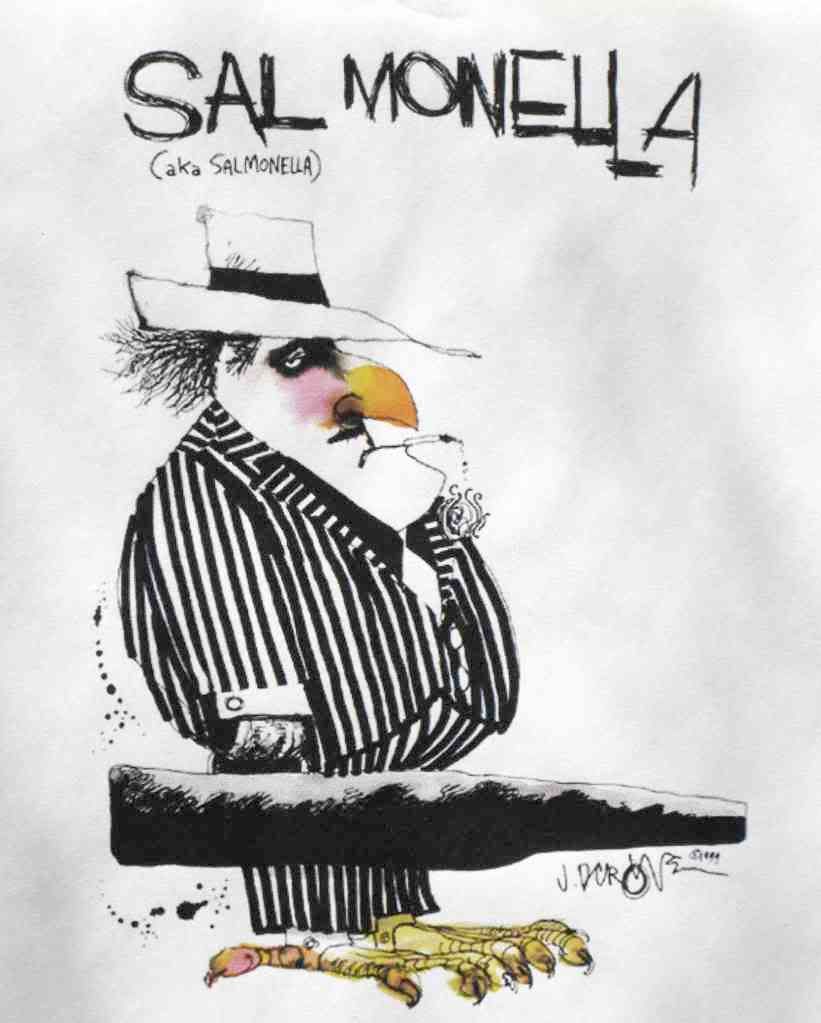The UK Health Protection Agency (HPA) is strongly urging caterers and the public to wash and thoroughly cook raw bean sprouts before they are eaten, unless they are clearly labeled as ready to eat.
This warning comes on the heels of the detection by a government lab of Salmonella in a sample of raw bean sprouts.
HPA has confirmed 106 cases of Salmonella Bareilly infections in England (102 cases), Wales (3 cases) and Northern Ireland (1 case). Health Protection Scotland has confirmed 19 cases, all of which are a genetic match for the 106 cases in England. At least some of the outbreak victims, when interviewed, reported having consumed bean sprouts. Genetic typing results for the Salmonella found in the sprouts will be available in a few days.
On September 17th, the UK Food Standards Agency issued an alert to consumers and caterers advising them that a Salmonella outbreak investigation had identified possible links to raw bean sprouts. According to a news release issued a few days later by HPA, "...routine testing of salad produce by wholesalers ... had identified Salmonella in a small number of raw beansprout samples." HPA added that it was not known whether the strain recovered from the sprouts was Salmonella Bareilly.
Bean sprouts – along with other seed sprouts – have a long history of involvement in food-borne disease outbreaks. In 1973, four people fell ill after eating raw bean sprouts that were produced using a do-it-yourself kit. The sprouts, when cultured in the lab, produced a pure culture of Bacillus cereus.
The most notorious sprout-related outbreaks took place in Japan in 1996 and 1997. In all, some 12,000 people – many of them school children – were infected with E. coli O157:H7 after consuming contaminated radish sprouts. Twelve people died. The sprouts were produced from radish seeds imported into Japan from the United States.
Raw alfalfa, soybean, radish, clover and mung bean sprouts all have been implicated in food-borne outbreaks since 1973 – most often due to E. coli O157:H7 or Salmonella. In May 2010, alfalfa sprouts produced by Caldwell Fresh Foods (Maywood, California) were the source of an outbreak of Salmonella Newport that caused 44 (lab-confirmed) illnesses in 11 US states.
The UK Food Standards Agency has issued the following updated advice for preparing and cooking bean sprouts:
For any person considered to be in a vulnerable group:
- keep bean sprouts refrigerated
- avoid sprouts that have turned brown or have a strange odour
- rinse raw bean sprouts thoroughly
- follow any instructions on the packaging and use the bean sprouts by the ‘use by’ dates
- bean sprouts that are labelled ‘ready to eat’ can be eaten uncooked, as long as they are consumed within the ‘use by’ date
- bean sprouts not labelled ‘ready to eat’ should be cooked thoroughly until they are piping hot all the way through
- if you are unsure whether the bean sprouts are ‘ready to eat’, or in the absence of clear preparation instructions, always cook the bean sprouts thoroughly before eating. This includes bean sprouts that are labelled or appear ‘pre-washed’, but are not described as ‘ready to eat’
- as a precautionary measure, cook all bean sprouts before eating them
- ensure bean sprouts are heated thoroughly until they are piping hot all the way through, including those labelled ‘ready to eat’
- Vulnerable groups are people with weakened immune systems, as well as the elderly, the very young and pregnant women.
(Unless otherwise noted, historical information on sprout-related outbreaks taken from Food Safety: Old Habits, New Perspectives, ASM Press 2007)
If you would like to receive automatic email alerts for all new articles posted on eFoodAlert, please click here or submit your request using the sidebar link. Please include "subscribe eFoodAlert" in the subject line.






No comments:
Post a Comment
Note: Only a member of this blog may post a comment.